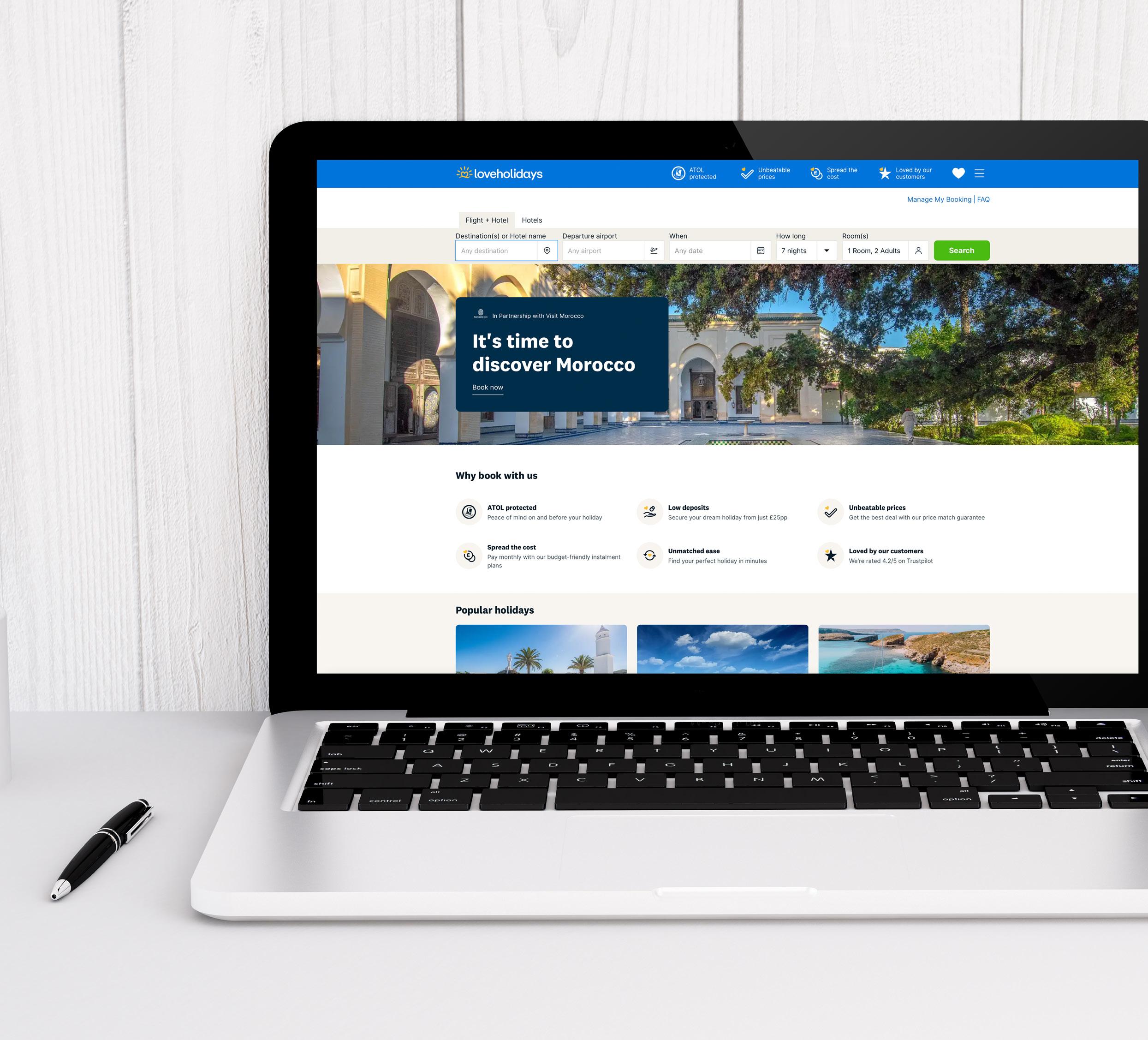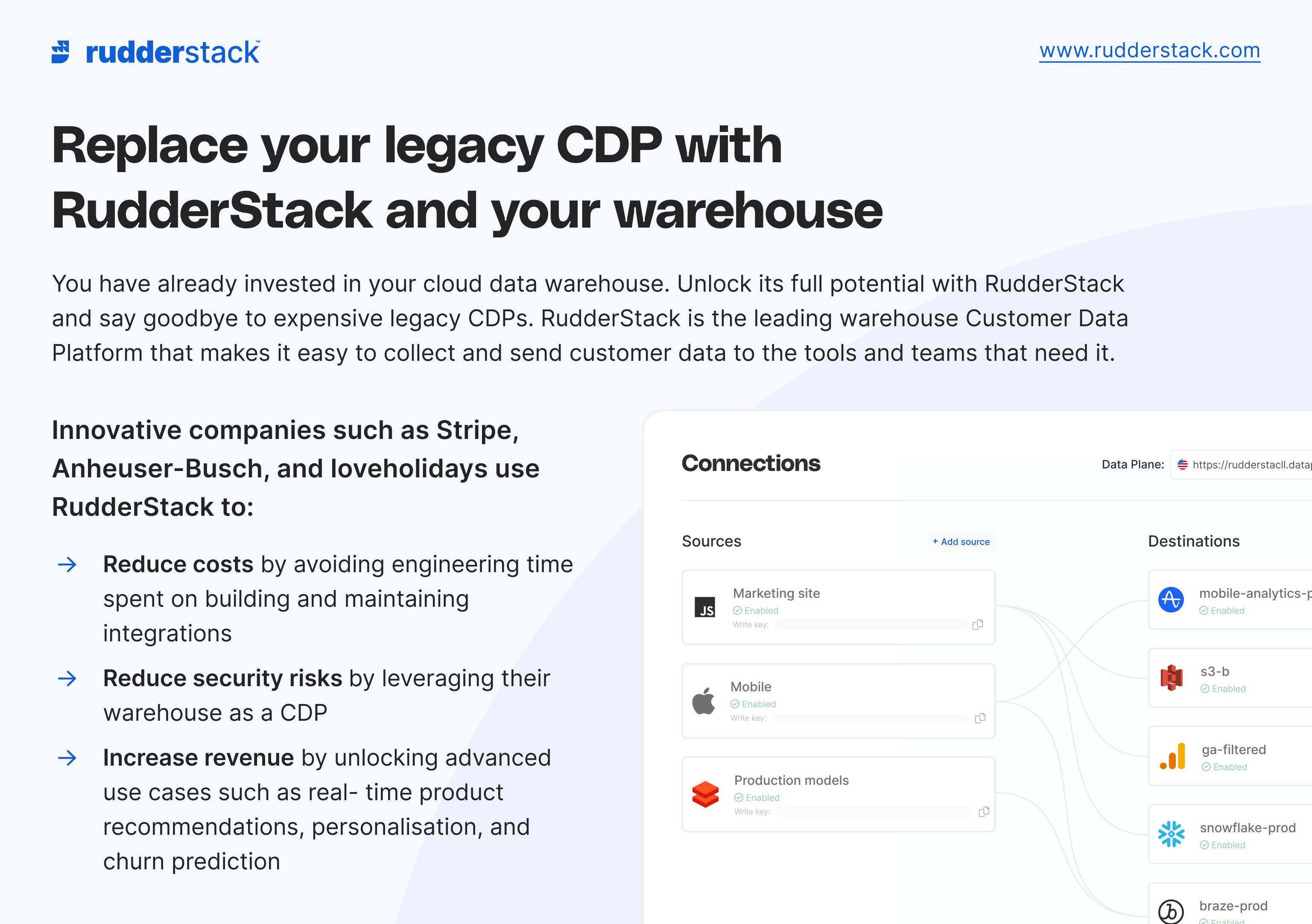Disrupting Online Travel




loveholidays’ success comes on the back of 150,000 requests a minute to its website and a data technology-complex task in the order of 500 billion holiday offers a day.

Global travel restrictions did not stop people searching for a break in the sun in the middle of the pandemic, says loveholidays’ chief technology officer Mike Jones. Some even booked in the hope their break would go ahead. Director of engineering and head of platform George Malamidis says, a little ruefully, “The first summer after lockdown we were breaking records for a month or two. People clearly wanted to go on holiday… though by November a lot of bookings had to be cancelled again. Covid just reinforced people’s desire to go on holiday.”
Now people are allowed to fly again, converting an idea into a fulfilled booking, rather than a wishful browse, highlights loveholidays’ emphasis on providing excellent customer service as well as an array of well-targeted options. Despite operating in the highly competitive online travel agency (OTA) space, the company rarely advertises, relying on effective digital marketing and its reputation for rapid response times, backed by smart technology, says Mike.
Holiday bookings in the northern hemisphere traditionally peak in January and February, when grey
As an online travel agency, the company helped more than 2 million people find their perfect getaway in 2022.

and gloom provoke thoughts of sunnier climes. Thanks to continual improvements and innovation, the loveholidays website can more than cope with demand whatever time of year online traffic peaks, with site pages loading many times more quickly than competitors, says Mike. It all helps the company stay ahead in a competitive market and Mike credits David Annez, director of engineering, Eugene Neale, director of
business IT and customer experience (CX) engineering, and George for achieving innovative change across the business.
“David has helped us deliver a world first in AB testing – testing cache pages on the edge – while Eugene helped us address customer issues quicker, and win a lot of awards, with the use of artificial intelligence (AI) in the contact centre space.

George spearheaded many of the infrastructure changes that have been foundational to the speed improvements. So, we have ripped apart core parts of the business, and made some amazing changes across the business, but fundamentally we have not changed the model, we have just made it a lot better than it used to be,” says Mike.
customer service,” he says. “It seems reasonably well accepted these days, which is sad.” To change both perception and actual experience, he set out to develop technology to reinstate great customer service in the travel industry. It harked back to the “good old days, when everybody knew your name and it was all extremely personable,” as Eugene
The holiday market and bookings are a very emotive business, Eugene points out – a fundamental reason to keep making improvements.
“The travel industry is one of the lowest performing sectors for
puts it, observing that he had never encountered such legendary service in his lifetime.
Customer satisfaction has been at the heart of every job Eugene has taken on, so he turned to conversational artificial intelligence (AI) to achieve that aim at scale. The move has won customer service and holiday industry awards, yet despite the accolades Eugene feels there is more to achieve.

“It’s a journey, like everything… and we’re still very much in the starting phase,” he says. Whatever the industry or service, currently opting to talk to a “real” person

“We have ripped apart core parts of the business, and made some amazing changes across the business, but fundamentally we have not changed the model”
Mike Jones, Chief Technology Officer
often means holding on a phone line, queuing for connection to a call centre. loveholidays will soon offer an alternative solution, Eugene says. The chat pop-up that is so useful answering online customer queries will undergo another innovative change.
“There will be a natural voice – which we’re currently trying to decide –
there’s so much that goes into it,” he smiles.
Does loveholidays position itself as a disruptor business, an innovator in technology or both? The leadership team concentrated on the loveholidays brand over the last three years, says Mike, so now they are seeking improvement and change

in other aspects of the business, particularly in-house.
“Previously loveholidays was known as a very entrepreneurial, fastgrowing business, winning awards in the sector. We want to be known as an innovator in technology and being great at what we do from a technical perspective. We are investing in the cultural aspects of our business
run four Hackfests now and they’ve been hugely successful,” he says. “The engagement is super-high and the ideas impressive.”
“At the last one, people used AI and called colleagues as they were presenting, so they were talking to the chat-bot, which was cool,” says David. Though they are not part of the IT development, call centre
practices, and we want to become known as an awesome technology company to work for, across many different dimensions,” says Mike.
Gathering new perspectives from within the company is part of that journey and one of the reasons David set up the company’s Hackfest or hackathon. “The goal was to bring together engineers, designers and product people across multiple teams, to come up with interesting ideas that we could potentially try out on the site, or internally. We’ve
and marketing teams add another dimension to the exchange. “We’ve also built new features on our website as a result of Hackfest, for example, customers can compare Google reviews for their accommodation and are able to favourite their holidays,” says David.
loveholidays can personalise recommendations for hotels by analysing customers’ preferences. Working with customer data platform RudderStack, loveholidays captures events and data from many sources,

“From the moment somebody interviews for a job at loveholidays, to when we start working together, we make it clear that the expectation is that we innovate and learn”
George Malamidis, Director of Engineering and Head of Platform
primarily its own website, but also from its experimentation platform and internal applications.
“It allows us to collect all that data and store it, and then lets us analyse and understand customer behaviour, experiments, system behaviour –and it does that without us having to think about it. Using RudderStack has helped us improve our systems and website, so it is a critical part of our business. We currently send around 6 billion to 7 billion events through RudderStack monthly – huge volumes,” says David.
Besides innovation aimed at improving customer experience,
Hackfest has sparked ideas for helpful tools internally, such as the portal that visualises all that loveholidays has to offer, allowing staff to understand the company set-up more easily.
“We have a complex set of services across a lot of teams. When new people join the company, they want to see how everything is connected and so a couple of engineers built a portal that lets us do just that. It has been hugely beneficial,” he says.
loveholidays celebrated a decade in business in 2022 and Mike wants to ensure that future company

culture provides employees with a sense of autonomy and ownership as well as a workplace. He highlights a lunch-and-learn initiative launched by software engineer Evelina Wahlstrom, where internal and external speakers give attendees mini lectures on interesting topics. These have proved so popular that a bigger venue is needed.

The four directors are also aware that they fit a stereotype of tech leadership and are determined to improve diversity in the industry. The company recently backed a conference for women in tech, at which two female loveholidays software engineers held a successful workshop. Further moves towards engaging a broader cross-section

“Using RudderStack has helped us improve our systems and website, so it is a critical part of our business. We currently send around 6 billion to 7 billion events through RudderStack monthly – huge volumes”
David Annez, Director of Engineering
of employees into the sector, all with an emphasis on innovation, are also planned.
“From the moment somebody interviews for a job at loveholidays, to when we start working together, we make it clear that the expectation is that we innovate and learn. These are two of the core concepts that we apply in engineering and technology in general,” says George. The company has blogged about its five engineering principles, focused on removing barriers to innovation. While some companies set aside a proportion of employees’ work time for personal and side projects,
loveholidays prefers innovation to form part of the everyday. George says the company takes a quantitative approach to measuring toil, operational work, with a view to minimising it, so that 100 percent of time (a goal, not the reality, he admits) can be dedicated to innovation.
“A manifestation of this is one of our engineering principles, which is to focus on differentiation. That means understanding what is unique about loveholidays and outsourcing the rest,” says George, using the company call centre as an example. “We are not

going to build our own telephony systems… outsourcing gave us time to work on our search platform instead, which is bespoke and unique to the industry. It’s what makes our website probably the only one in the industry whose search operates a lot more like Amazon or Google, rather than our competitors’ where you click, and wait for something to come back. That is one example of many.”

Get the speed, security and edge cloud innovation you need to deliver profitable and engaging experiences.

“On the old platform, some of the pages were quite slow, so we used Fastly to make them go fast, essentially, and cache them”
David Annez, Director of Engineering
This is where partnerships come into their own, says Mike. “We look to buy best-in-class software,” he says.

For instance, Fastly allowed loveholidays to level up its experimentation platform in its early beta stages. David explains, “On the old platform, some of the pages were quite slow, so we used Fastly to make them go fast, essentially, and cache them. But that meant we couldn’t test, and so the Fastly computer edge enabled us to run experiments on the edge and be
a business is expansion into new markets and opening international offices, which equates to significant growth for its 250-strong team. The company has plans in place to increase its headcount by 30 percent to support its phenomenal growth, the equivalent of 70 new roles, in 2023, with the majority of those tech-based roles.The directors’ emphasis on innovation is a unifying theme, though their early interest in technology started from different points. Comparing notes, in their younger
able to test some of our most critical pages.”
When loveholidays first decided to work with Fastly its technology was barely used in the travel industry. “Now we have rolled that platform out across all our websites in what was a world first. We’ve worked very closely with Fastly to continue to use it in the future because it is so powerful. It’s really come off well for us,” says David.
days they variously built their own PC, launched software, started businesses, released albums, worked as a chef, and at a hedge fund. “We have very different characteristics in the team,” says Mike, as they consider what the future might hold.
“I think you bring everything from your past to make today better,” says Eugene.
For further information on loveholidays, visit www.loveholidays.com
“I think you bring everything from your past to make today better”
Eugene Neale, Director of Business IT and Customer Experience (CX) Engineering
